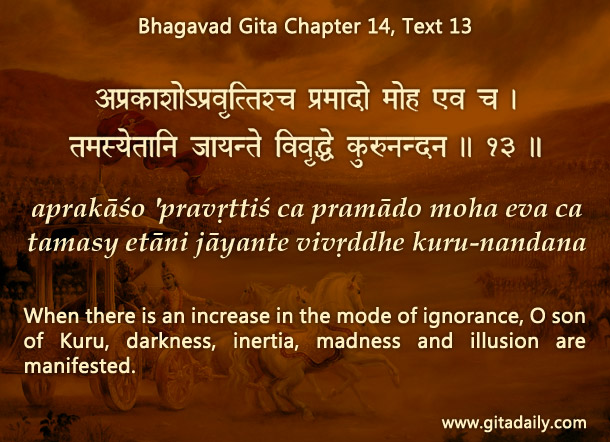The word “spaced out” can refer to our actions or to our consciousness. When we have a lot of things to do, especially demanding things, then we may need to distribute them over time so that we have the physical energy and mental clarity to do them effectively. Such spacing out of our activities is constructive.
In contrast, when we ourselves get spaced out, that is, our consciousness zones out into space, not thinking or doing anything purposefully, we become ineffective. Worse still, our thinking and acting can even become counterproductive – we do things distractedly and incorrectly, thereby wasting time in undoing and redoing.
The spaced-out state of consciousness symptomizes an ignorant state. The Bhagavad-gita (14.13) states that when there is no clear inner reflection or tangible outer action – when there is simply illusion and inebriation – that indicates predominance of the mode of ignorance. If we are thinking of, say, resentful or revengeful thoughts, then such thinking makes us agitated. We waste not only the time spent in such thinking but also some time thereafter till we recover from the agitation. When we are spaced out, we unwittingly work against ourselves.
Gita wisdom recommends the process of bhakti-yoga for raising our consciousness from the lower modes of ignorance and passion to the higher mode of goodness and ultimately the soul’s natural state of transcendence. By focusing on all-pure Krishna, we become purified and gain the inner clarity to understand how much we can work at a stretch and how we can take breaks for best rejuvenating ourselves. Through such contemplative breaks, we can learn from the past, realign ourselves with our purpose, and plan for the future.
By thus spacing out our practical activities appropriately with devotional clarity, we can optimize our contributions.
To know more about this verse, please click on the image
Explanation of article:
Podcast:
Download by “right-click and save”


nice please keep it up